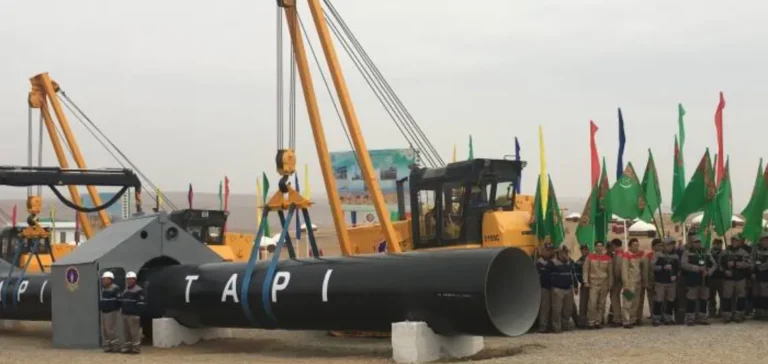On July 21, Afghanistan and Turkmenistan expressed their intention to enhance their bilateral cooperation during a meeting in Ashgabat between Afghan Ambassador Fazl Mohammad Saber and Turkmen Deputy Foreign Minister Ahmad Qurbanov. According to the Afghan Embassy, the discussions highlighted the importance of increased collaboration across several key areas, including political dialogue, economic engagement, and strategic connectivity.
The talks primarily focused on large-scale infrastructure projects, notably the Turkmenistan-Afghanistan-Pakistan-India (TAPI) gas pipeline, a major energy initiative aimed at strengthening energy exchanges between the involved countries. The two sides also addressed the development of railway lines connecting the two nations, another key project in their economic cooperation framework.
In addition to these projects, the officials discussed measures to facilitate bilateral trade and improve services for Afghan citizens residing in Turkmenistan. Both Turkmenistan and Afghanistan expressed satisfaction with the current state of their cooperation, while reaffirming their readiness to expand the partnership across all priority sectors.
Strengthening energy cooperation
The discussions also covered energy cooperation, with particular attention given to the TAPI gas pipeline. This project, which aims to transport Turkmen natural gas to India via Afghanistan and Pakistan, represents a strategic issue for both Afghanistan, which hopes to gain export revenues, and Turkmenistan, which seeks to diversify its energy export routes. Both countries agreed to implement mechanisms to accelerate the progress of the project.
Development of trade infrastructure
In the same context, the talks included ongoing railway projects designed to improve regional connectivity. Transport infrastructure is seen as essential for boosting trade between the two nations, particularly by facilitating access to neighbouring markets. Special emphasis was placed on implementing measures to streamline logistical and customs processes, in order to reduce barriers to cross-border trade.






















